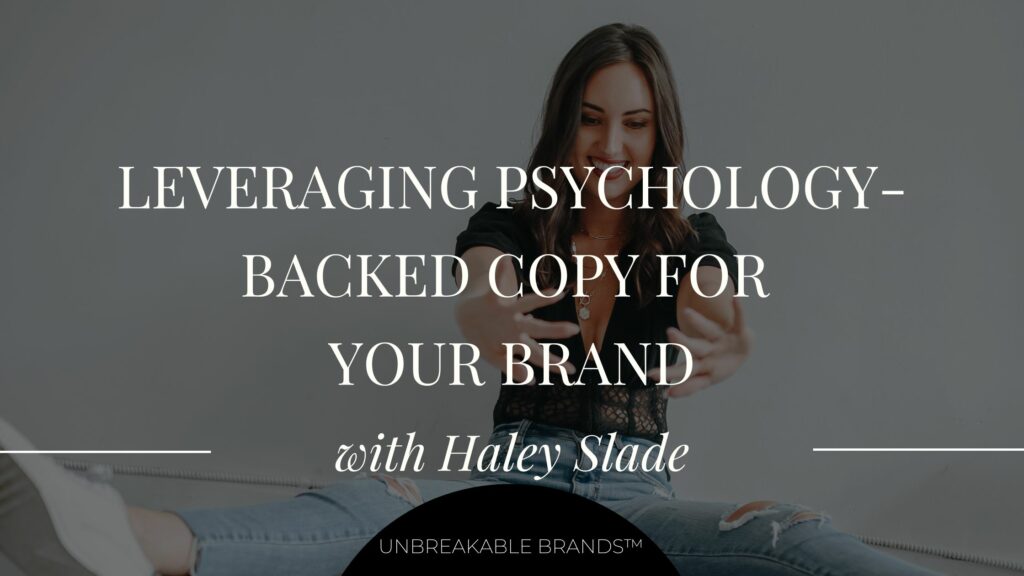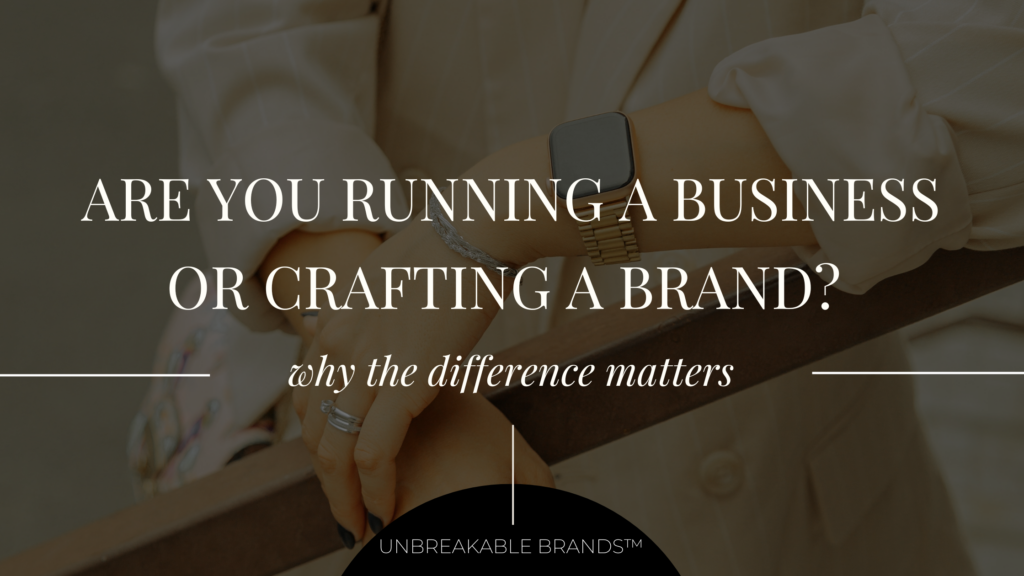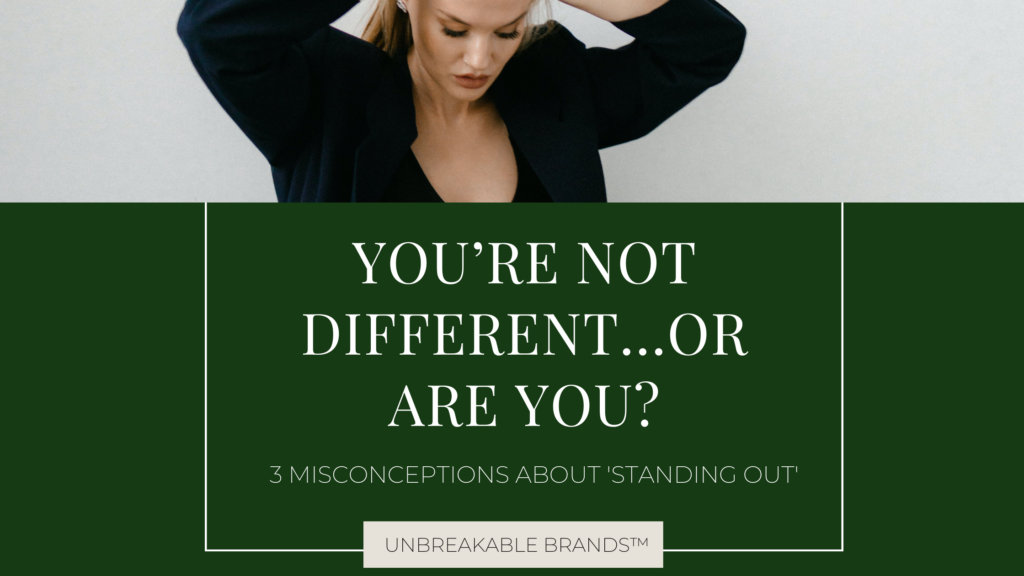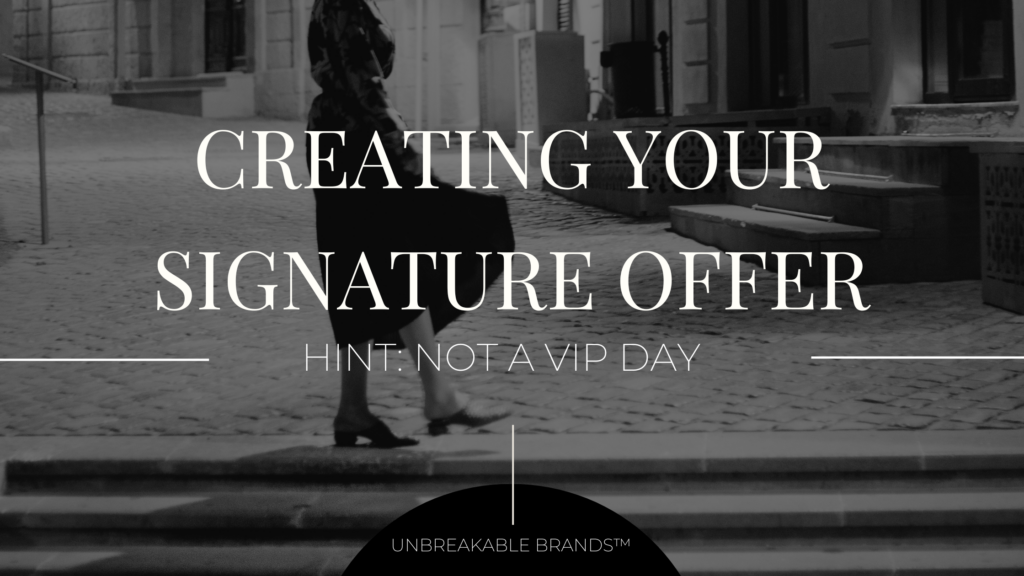I am so thrilled to welcome Haley Slade to the show today, and we will be talking about how to leverage psychology-backed copy for your brand.
Founder of Slade Copy House, Haley has climbed the ladder in her industry, writing for brands such as The Real Housewives, Lufthansa Airlines, and Dove. Her clients have been featured in Business Insider, The New York Times, CNBC, Refinery29, Nerd Wallet, and the Cosmopolitan.
Haley teaches methods including (but not limited to) A/B testing, psychology-backed approaches to building brand loyalty, and copywriting techniques that turn words into clients– giving her a multi-six-figure business that continues to grow.
Welcome Haley!
People glaze over if you have generic copy, if you’re saying the exact same thing as everyone else in your industry.
– Haley Slade, CEO & Founder of Slade Copy House
Here’s what you can expect to hear in this episode:
- Haley’s background and journey to running a multi-six-figure business
- Finding your unique brand voice and how it ties into messaging and copywriting
- What it means to have psychology-backed copy
- Three tips for building psychology-backed copy
- Haley’s thoughts about looking at your competition
- How Haley is building an Unbreakable Brand
Resources Mentioned In
This Episode
I would love to hear about your background. how did you get to this point where you’re running a multi-six-figure business?
So prior to starting my agency, I was a licensed mental health clinician for nearly a decade. I actually have a degree in psychology, and my late teens and all of my adulthood have basically been dedicated to studying humans and how we think and what makes us act and what we respond to, and what we don’t respond to.
My entire background is steeped in psychology. And even as a kid, I loved to watch TV shows and things that had like studying of human brains, and I’ve always loved to pick brains and to see how people think. So blending this in with copywriting makes for the perfect concoction for conversion. When you understand how someone thinks and what makes them act, and how to tap into their emotion, you essentially get the action that you want to get.
So I ended my time; I was super burnt out as a therapist in that realm. And I still wanted to help people, and I’ve always loved to write. I would do it on the side. And I was like, I can mesh the two, like psychology and writing. That’s basically copywriting. And then my brand and agency were born. And it has been nothing but up since, and I’m so blessed.
How can one find their unique brand voice? How does this tie into messaging and copywriting?
I would first say you have to understand what a brand means. What does a brand mean to you? And so, for me, a brand is your reputation. It’s your customer experience, your personality, and your messaging; it’s the total of everything that a business does and says and represents in the mind of its audience. And that’s the key.
It’s in the mind of your audience. It’s a complete picture of how a company is perceived. So all of that in one short sentence is a brand is how you make people think and feel about you.
Then obviously, comes your brand voice. So how do you find a brand voice? I would say the first thing that you have to do is it’s essential to look at your brand’s values and mission; you have to know what you value as a brand and what mission you’re on as a brand.
So ask yourself what you want your brand to stand for, what personality you want to portray, and your brand’s value. And mission should be the foundation of everything that comes after that. It builds on everything builds, on those things, the values, and the missions should inform the personality and tone of your brand. And that should be reflected in like all aspects of your brand.
So your brand voice is seamless to create some type of guideline for your language. So you should include guidelines for language consistent with your brand’s personality and tone. And this could be guidelines for grammar, punctuation, word choices, signature phrasing, signature call to actions, your tagline slogans anything like that should be consistent with your core values, your mission, and your goals as a brand.
And in building off of that, not only does it help you claim your space, and it gives you that authority, but it also sets you apart in the sense that people glaze over.
If you have generic copy, if you are saying the exact same things as everyone else in your industry, this might be a hot topic here, but one of my pet peeves is people using the term financial freedom. Everybody wants financial freedom; we all want that, of course. And it’s okay to talk about it. But maybe say like something else instead of financial freedom, like you can say financial freedom in 100 other ways and still make the exact same point, but you sound different than someone else in your industry.
Because that’s a hot topic, everyone loves to talk about it. I can’t think of a single human I’ve ever met that doesn’t want financial freedom. But how many times have you personally glazed over reading copy that like says the same things as everyone else’s industry? It doesn’t convert; it doesn’t sell. You just keep scrolling. So that’s another layer to why it’s good to have different unique words within your brand.
What does it mean to have a psychology-backed copy?
The cool thing about copywriting is it’s as much a science as it is an art, and great copywriters understand this, that what sets them apart from mediocre ones is knowing that it’s so scientific, just as much as it is artistic, and you don’t have to be some big Word Wizard to craft impactful copy.
What you need to do is you need to find a way to tap into your consumer’s internal motivators, and that is what persuades them to act. It’s important if you want to write good copy to kind of put the artist within you into hibernation and adopt a more elegant analytical and scientific approach to get into the sight of your prospect. That’s where the conversion happens.
So once you understand your consumer’s psychology, and you know their mental triggers, it becomes easier to indulge in the persuasion. And marketers and copywriters, in specific, who are aware of these mental triggers can activate them to influence a potential consumer, or someone that sees your ad or your website, or your emails into a conversion, often without them even realizing that they’re like getting converted. If your copy is good, someone doesn’t realize they’re being sold to.
It’s happened to me; I’ve been reading things that I’ve seen from other brands. And I’m like, “oh, like I really want this.” And then they get to the end, like call to action. And I’m like, “Oh my gosh, they just sold me.” And like they were trying to sell me and I didn’t even realize they were selling me.
And that’s the key to psychology-backed copy is getting into that psyche, understanding the mental triggers, and you’re getting them to say yes to you before they even realize they’re being sold to.
What are some of the top tips or hacks for building psychology-backed copy?
Different Differentiation
Differentiation is a crowded marketplace in the realm that in which we work. I mean, let’s just be honest and call it like it is. There’s a lot of saturation in our industries. But you can stand out, and it can be hard to stand out from the competition, but it’s not impossible. So by using storytelling, and I’ll dive into that, to create a unique brand message, you can differentiate your brand from others and create a memorable, memorable impression in the minds of your audience.
appeal to the values of your customer
To piggyback off of that, you go to the values of your consumer; people are more likely to engage with brands that share their values and their beliefs within their brand message within how they sell their offers within how they speak to people.
And it’s not always just saying hey, I believe in this. It’s you can weave in your beliefs in the way that you speak in the way that you write your copy. So identify the values that are important to your audience and find a way to align your brand message with those values.
utilize storytelling
If you take nothing else away, this is like the biggest one. Utilize storytelling in your copy.
There was actually research conducted, I think, by the Journal of Consumer Research or something like that. And it revealed that emotional responses to an advertisement have a greater influence on consumer’s intent to buy than the actual content of the ad. So the emotion is what created the action rather than the actual copy or the actual words in the ad. And that’s because stories are powerful because they evoke strong emotions in the listener.
We grew up hearing stories. I mean, how many times as a kid were you laying in bed and your parents reading you like “The Three Little Pigs?” When we hear a story that resonates with us, it creates a deep emotional connection that can last long after the story’s over.
And this emotional engagement is what makes storytelling such an effective tool and building brand loyalty and driving that customer engagement. So it creates emotional engagement, and then it helps memory retention.
If you want to be a memorable brand, research has shown that stories are much more effective at helping us remember information and facts, and figures than any other type of media or content that we can put out there. And it’s because stories create a mental image.
You start, like maybe, reminiscing on smells related to the story or childhood things that the story brings up. When you share a story, it creates these images for our brains to remember and recall later, just like the little stories that we grew up hearing, I’m sure you just thought of the three little pigs and however, your little childhood brain thought about it as a kid. So that’s another layer to it.
And then the connection. And this is probably my favorite part of storytelling. And one of the key reasons why storytelling is so powerful is that it creates a sense of connection between the storyteller and the audience. So when we hear a story, our brain lights up in a way that allows us to imagine ourselves in the story, and to feel the emotions of the character, and we identify with the struggles that the person in the story is going through; we identify with the triumphs.
And that’s the key, is no one wants to imagine themselves struggling; we always want to be the person that’s triumphing. And so when we walk our reader and our consumer through this story, obviously, it’s always going to end in some type of triumph. And that’s where we want to place them. And this sense of connection is what makes storytelling so memorable and engaging. So all of that to say, tell a story. That’s the most significant way to connect with your consumer.
What are your thoughts about looking at your competition competitor analysis?
I might get roasted for this, but all I can be is honest. I actually hide a lot of people that I follow on social media, like other copywriters that I follow on social media, I have their stories or their posts muted. And not out of a place of rudeness or anything negative.
I found myself early on; it kind of got in my head. So when I was new, I started to look at all of these other people just to see what was out there. What I needed to do differently, what I could learn from, and it just started getting in my head all of these ways. And I was like, “Okay, I feel like the more than I’m looking at this, the more I don’t know how to be different.”
And so it’s like, I would rather not know what’s kind of being put out there in a certain sense. So I can be me. And I can run my business and help people and serve people in a way that is out of my own brain, out of my own heart. And I still look every now and then because you have to know what’s being done in your industry to be different. But I’m very careful with how much I consume, where I consume it from, and how I consume it.
So I’m not saying that you should never look at your competitors and, like, hide them forever. But you have to be very careful with how you’re doing it, who you’re doing it with, and, and your intent in doing it. So that’s kind of what I do. And it’s I feel like it’s protected me mentally; I feel like it’s protected my business. And it allows me the creative space to do what I want in my business and to feel like I’m really being true to my brand.
And this might be another hot topic of conversation. But I really strongly desire to be a business outside of the Instagram bubble. And I have made myself a business outside of the Instagram bubble.
Because when I first started it, I was in that bubble. And I was like, I felt like I was in this MLM circle, and it felt icky. And I was like, Can I continue to make money in this bubble? Yeah. Is that safe? Yeah. Do I feel like a real business that can actually grow and scale and become what I want to be in this bubble? Absolutely not.
And so I don’t look at a lot of Instagram businesses, or even businesses that are on Instagram. I read books; I read like sell psychology books; I listen to podcasts; I go outside of the realm of social media to consume inspiration, to consume something that helps me learn and grow my skills and talents. And I find that that has helped me so much more than just scrolling on other people’s accounts on social media. And it’s healthier for me personally.
Take The Brand Quiz To Unearth Your brand personality
Pop over to our brand and web design agency and take the free brand personality quiz to begin diving into your brand persona.
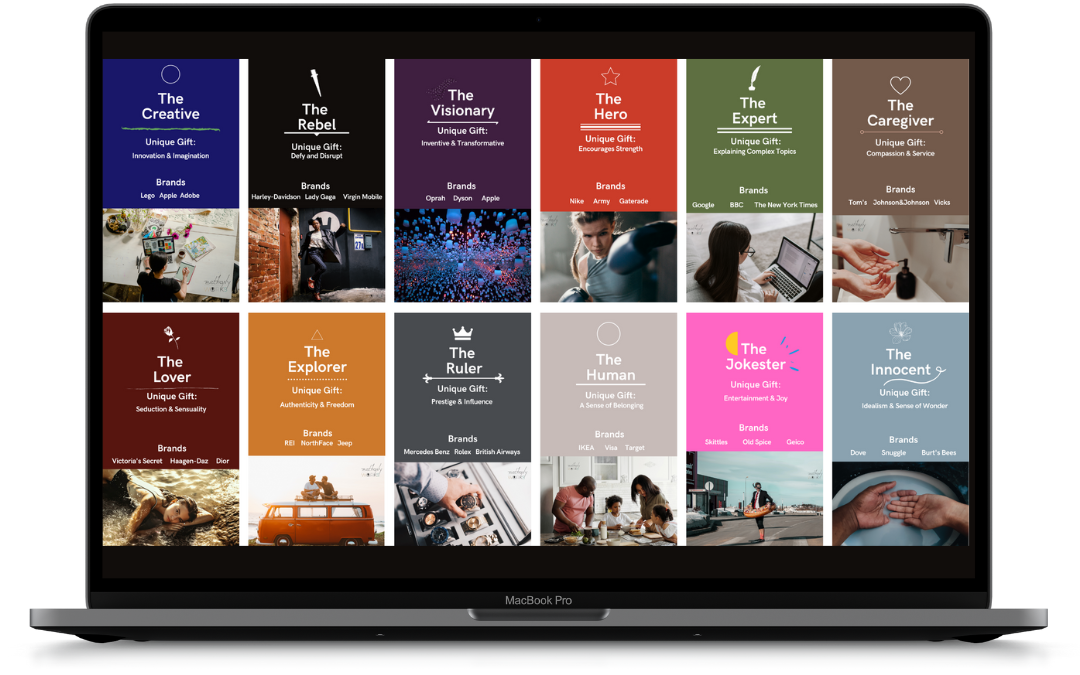
How are you building an Unbreakable Brand?
What I’ve learned as I have grown my business and like moved into an agency and I manage a team and see my goals, like my goal is to eventually work myself out of my business into, like, a true CEO role where I’m overseeing and my team does everything. I can do coaching, I can do a course, or I can do none of that. And I can just work on investing and get getting properties—that way I can bring my team in person for training and then just get into real estate.
So I have these big dreams and these big goals, but there is no way that I can reach them without the proper systems in place. And that is one thing. This isn’t necessarily a copywriting tip. But it’s business if you want any, any industry that you’re in, I don’t care what you do, systems have to be in place, you have to have a foundation of systems and automations, if possible, to help yourself grow and to be able to scale and do the things that you want to do.
So recently, in the last few months, I have been working on completely rearranging, shifting, creating new systems breaking down systems that didn’t work, and figuring out how I can train my team in a way that if someone leaves or I have to fire someone or let someone go, someone else can come into their place so seamlessly with very minimal training because I’ve created this system that kind of lives on if that makes sense.
I have just recently redone my whole client experience with the Dubsado. I hired Jesstation Co., and I had her come in, and just remap out my workflows and my automations and canned emails; that way, my brand voice was consistent. My communication is more high touch because it was not – I needed to do it for so long. And I just didn’t have the time to do it. And I was like, “Why haven’t I outsourced this?”
So recognizing when I need to outsource more and then just like understanding that a business is much different than having a brand. So I’m constantly aware when I’m in business mode. And when I’m in brand mode, and you never really switch between the two, like both are constantly flowing.
But sometimes you have to focus more on how you’re making people feel. And sometimes you have to focus on scaling and operations and finances, and all of that meshes together.
I’m just focusing on constantly growing and learning. Reading books and listening to podcasts and investing in my team, and looking where my gaps are, am I making my consumer feel the way that I want them to feel? Am I coming across the way that I want to come across?
So like, I’m constantly reassessing all of those things. And I’m making sure that I’m never staying stagnant. I’m always working on something to grow or to get to that next level, or to make sure that I’m like being the best business owner that I can be as cliché as that sounds – it’s really true.
I want to say too when I recently rebranded back in the fall with Bethany, I was completely shifting what my business was, how my business felt, and who I was targeting, and it all started with that brand strategy. And I had Bethany do my brand strategy and it was incredible.
And so this is a plug, I’m like hire Bethany to do your brand strategy, because that was seriously like the starting point of clarity. And then obviously the visuals, and the design of the branding, you know, came right after that. But I’ve never felt more confident in my business and proud to show up in a visual way and proud to show up with my message.
Then when I got the brand strategy done, the design done, got my website out there and just been nothing but up since then. Because I feel at home in my brand. And again, it started with figuring out my values, my mission getting someone that I trusted to do that strategy to build gorgeous fun visuals that are still professional.
And it only goes up, but you have to put in the work. You have to monitor your systems; you have to look at how your audience is responding to you. You have to make changes and tweak them as you go along. Or you’re not gonna get there.
In a study by, I think Epsilon, or something, found that 80% of consumers are more likely to make a purchase when a brand offers a personalized experience. And you offer a personalized experience by having a specific type of brand, by having your brand by researching your consumer by knowing exactly what your target audience wants, getting inside their hand, understanding those mental triggers, and then giving that experience tailored around what they want.
So your brand essentially speaks to what they want. And that is what makes it personal is the personal side of your brand, the personal side of understanding them. You match the two, and you’re a match made in heaven.
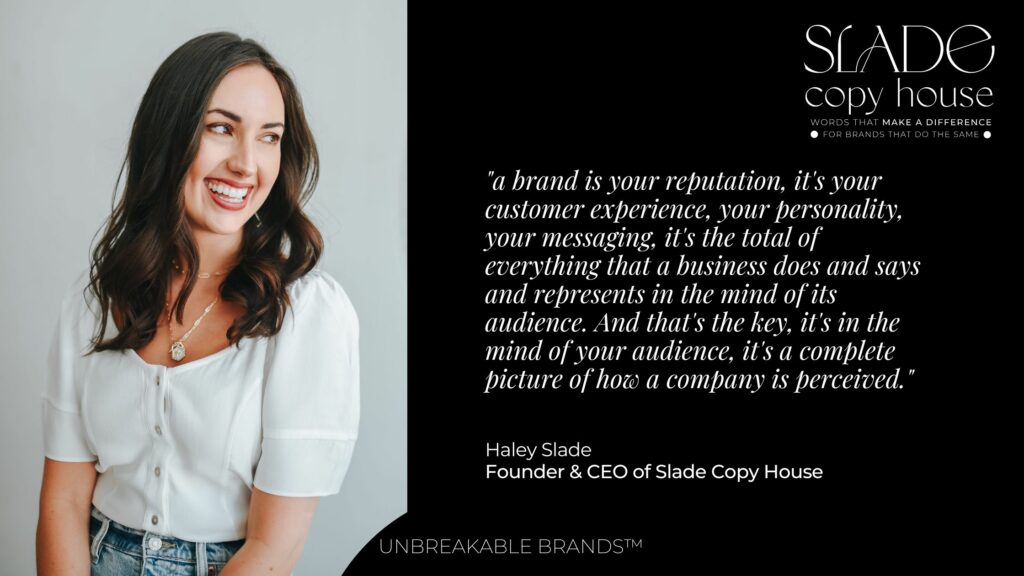
Haley Slade bio
Founder of Slade Copy House, Haley has climbed the ladder in her industry, writing for brands such as The Real Housewives, Lufthansa Airlines, and Dove. Her clients have been featured in Business Insider, The New York Times, CNBC, Refinery29, Nerd Wallet, and the Cosmopolitan.
Due to her signature method rooted in human science, she has had press features in known publications and broadcasts such as Marketing Sherpa, Fiverr, and NDT News.
Haley teaches methods including (but not limited to) A/B testing, psychology-backed approaches to building brand loyalty, and copywriting techniques that turn words into clients– giving her a multi-six-figure business that continues to grow.

